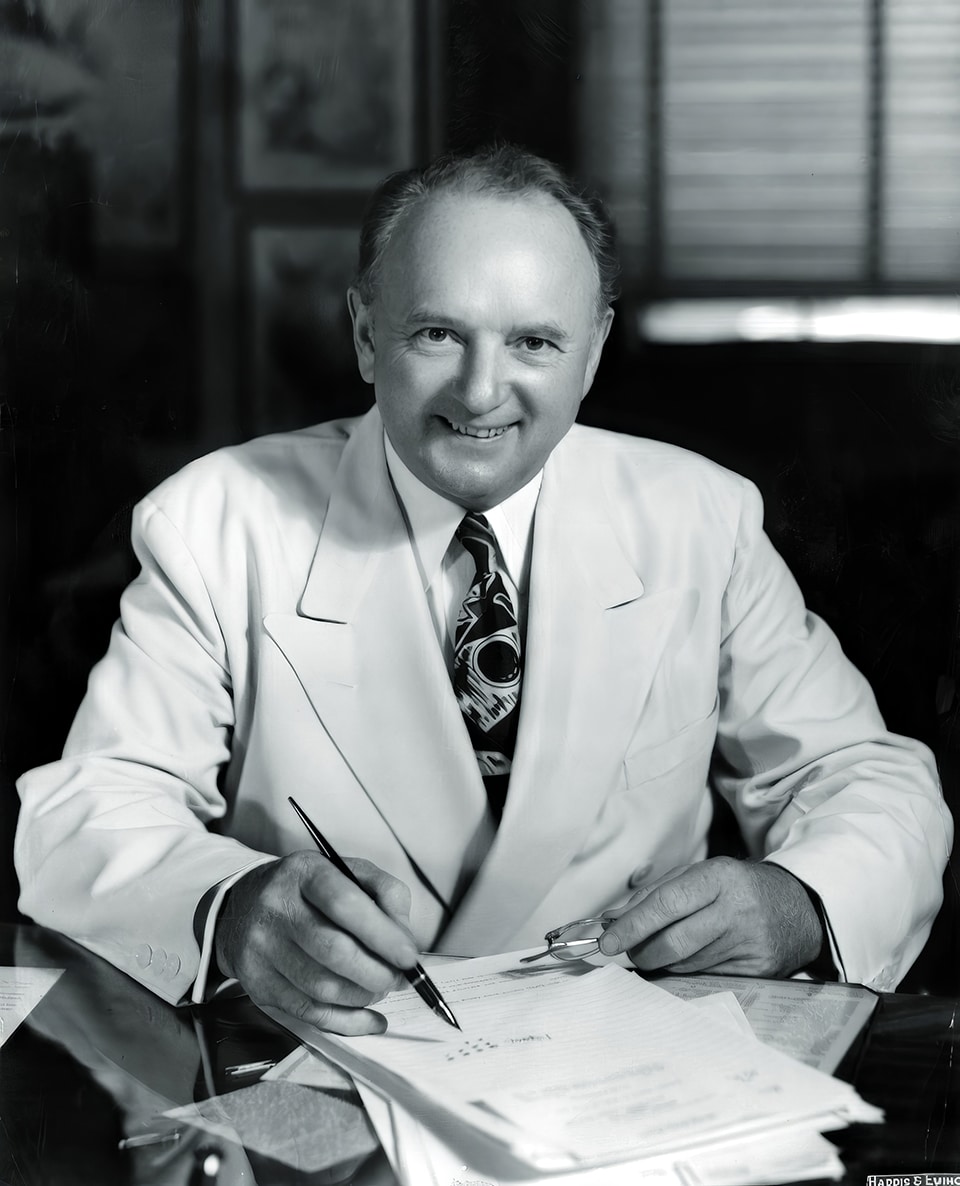RESOURCES
PEOPLE
Sen. Harry Flood Byrd Sr.
1887-1966
Harry F. Byrd was a dominant force in 20th-century Virginia politics and a chief architect of the state’s opposition to civil rights and school desegregation. Born in Martinsburg, West Virginia, and raised in Winchester, Virginia, Byrd was the son of a successful apple grower and newspaper publisher. The financial struggles his family faced after the Civil War and his father’s debt-ridden business ventures deeply influenced Byrd’s lifelong belief in fiscal restraint. He famously avoided borrowing and developed a “pay-as-you-go” philosophy that shaped his approach to government.
Byrd began his political career as president of the Valley Turnpike Company and entered the Virginia State Senate at age 28. His success in promoting highway infrastructure led to his election as Governor of Virginia (1926–1930). During his tenure, he reorganized state government, consolidating agencies and instituting efficiencies that appealed to conservative voters. He also cultivated a vast statewide network of political allies, laying the foundation for the Byrd Organization—a tightly controlled Democratic machine that dominated Virginia politics for decades.
In 1933, Byrd was appointed to the United States Senate, where he served until 1965. His power was sustained by a deliberately restricted electorate—through poll taxes, literacy tests, and other barriers—that suppressed Black voters and poor whites, ensuring the continued dominance of his political machine.
Byrd’s most notorious legacy lies in his fierce opposition to civil rights. He considered the Supreme Court’s 1954 ruling in Brown v. Board of Education, which mandated the desegregation of public schools, to be “the most serious crisis that has occurred since the War Between the States.” He believed the decision was a grave threat to the Southern way of life and an unconstitutional overreach of federal power.
Byrd orchestrated the drafting of the “Southern Manifesto” in 1956, a document signed by 101 members of Congress—including Virginia’s entire delegation—which denounced Brown as a “clear abuse of judicial power” and vowed to resist its implementation by all lawful means.
His most impactful—and damaging—contribution was the creation of the policy of “Massive Resistance”, a coordinated state-led effort to block school desegregation at all costs. Under Byrd’s leadership, the Virginia General Assembly passed laws that would defund and forcibly close public schools that attempted to integrate. Byrd himself never publicly advocated violence, but he gave political legitimacy and cover to more extreme segregationist actions.
The most devastating example of Massive Resistance occurred in Prince Edward County, where local officials—emboldened by Byrd’s influence and policies—chose to shut down the entire public school system rather than comply with federal desegregation orders. From 1959 to 1964, Black and poor white children in Prince Edward County were denied access to public education, while wealthier white families had access to private segregated academies with the support of public funding. Byrd never condemned these closures, and his silence signaled tacit approval.
Although education had not been a focus of Byrd’s earlier reform efforts, his leadership in opposing desegregation left an indelible mark on Virginia and the nation. His policies delayed school integration, deepened racial divisions, and deprived thousands of Black children of their right to education.
